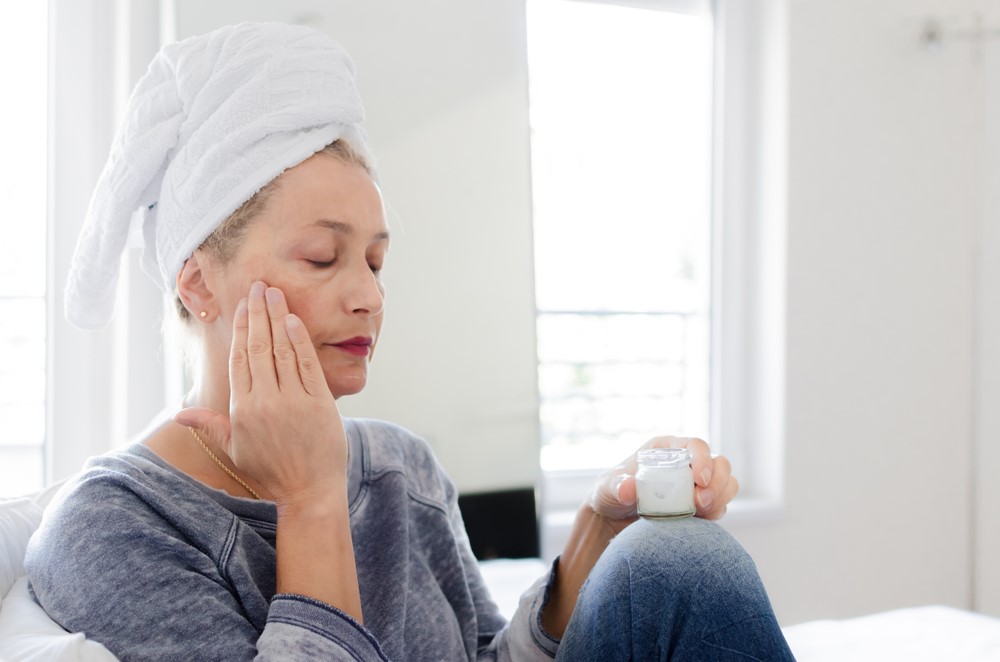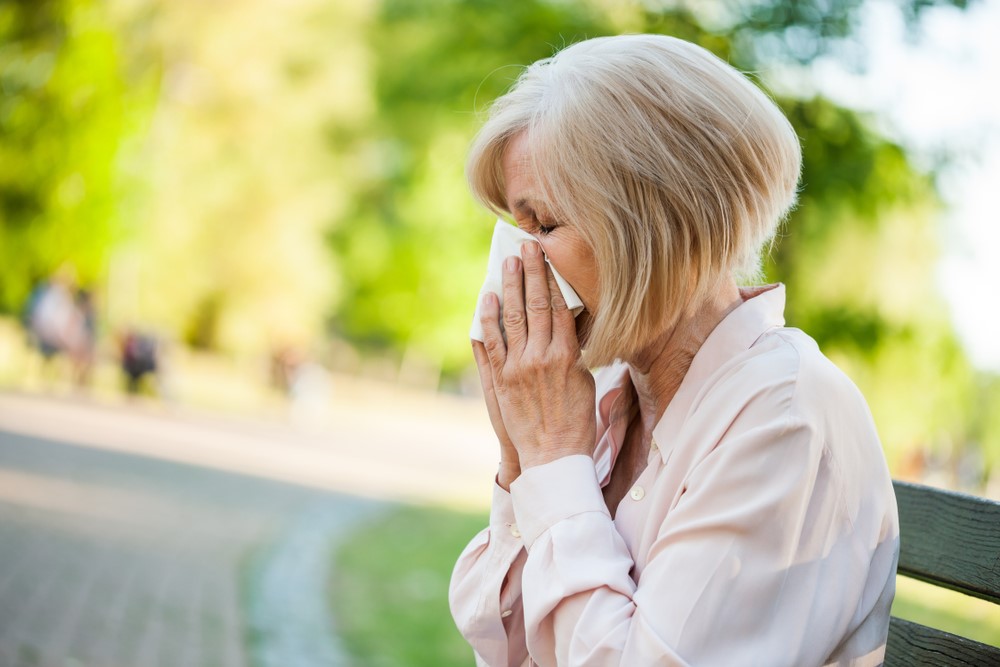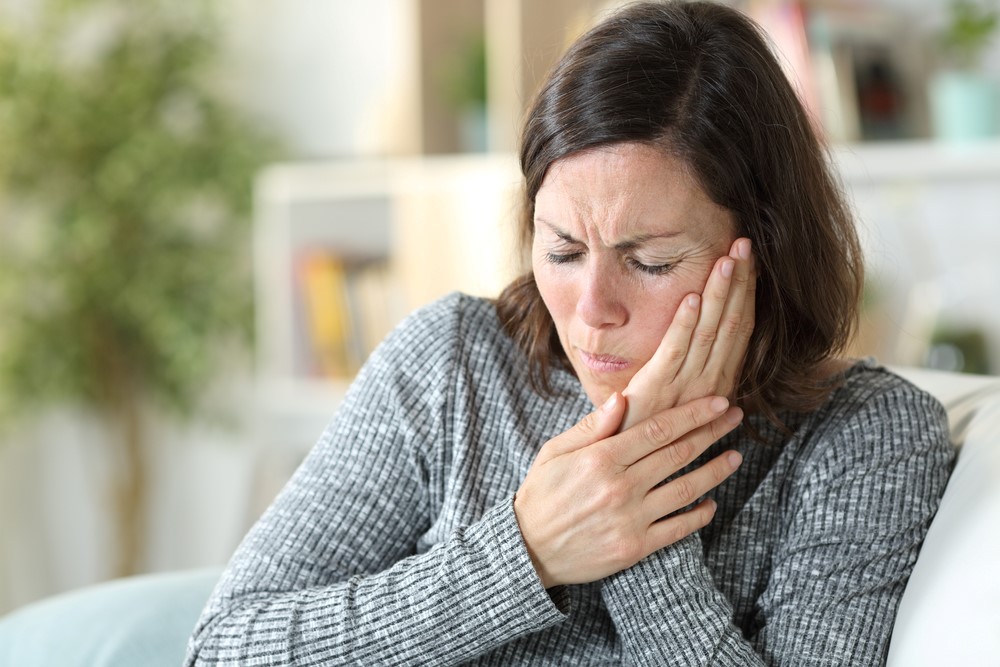11 Lesser-Known Ways Menopause Impacts You
July 27, 2022Most of us know the common symptoms of menopause: loss of period, night sweats, hot flashes, mood swings, vaginal dryness, breast tenderness, and so on. But what you might not know is that menopause can affect almost every area of your life, from your short-term memory recall to your spring allergies. Today, we’re discussing 11 lesser-known ways that menopause relief can impact your life:
#1 It might be responsible for your brain fog.
No, you aren’t losing your mind: forgetfulness, brain fog, and issues with short-term memory recall are known side effects of menopause. Both fluctuating hormone levels and the sleep disturbances they cause can contribute to this forgetfulness (learn more about how to beat menopause fatigue here). Of course, forgetfulness can also be a sign of normal aging or even dementia, so don’t be afraid to talk to your doctor if you are concerned about that.
#2 You might develop migraines for the first time.
Some women get headaches and migraines before and during their periods due to changing hormone levels. This often continues or worsens during menopause due to the even greater hormone fluctuations. Some women may even begin experiencing migraines for the first time, even if they never struggled with them before, and some of them even need hormone replacement therapy to get relief.

By Focus and Blur / Shutterstock.com
#3 Your skin might change.
You probably experienced skin changes during puberty as your skin ramped up oil production. The opposite happens during menopause, with skin becoming drier, thinner, and less elastic as oil production slows and collagen breaks down. This increased fragility can also lead to more irritation, itching, rashes, and other skin conditions; you may also find that your skin is more sensitive to chafing, rough fabrics, and other things that never bothered you before.
#4 Your nails might become brittle and weak.
While your toenails usually become thicker and harder as you age, the exact opposite happens to your fingernails: they often become weak and brittle, and menopause makes it worse. That’s because your nails need to be moisturized and hydrated to stay healthy and strong. As menopause progresses and your skin and nails dry out, this often causes them to become weaker.
#5 You might have thinner hair or even lose your hair.
While it’s more common for men to experience hair loss as they age (hence the term “male pattern baldness”), women can experience hair loss too. Their hair may thin all over their scalp, or they may experience patches of baldness instead. Certain hairstyles, diets, and vitamin deficiency can worsen hair thinning or loss.

By Mladen Mitrinovic / Shutterstock.com
#6 You might develop new allergies.
As if these other symptoms weren’t enough, you might find yourself developing new allergies as you go through menopause, even if you were never prone to allergies before. This occurs because dropping estrogen levels can stimulate a spike in histamine levels, causing an allergic reaction to things that never bothered you before. If you feel like your allergies have been getting worse as you age, it’s definitely not all in your head!
#7 Your body odor might change.
Your body odor can change for the worse during menopause for multiple reasons. For one, all those hot flashes and menopause night sweats can result in pungent perspiration. Fluctuating hormones can cause changes to the pH and smell of your vagina. Finally, urinary or fecal incontinence that is triggered by menopause or aging can also contribute to body odor.
#8 It can contribute to neurological symptoms.
Fluctuating hormones can lead to a variety of neurological sensations that aren’t caused by physical stimuli, including numbness, tingling, pins and needles, prickling, stinging, and even the sensation of things crawling on you. Some women also experience the feeling of phantom electric shocks as a precursor to hot flashes; these shocks usually occur around the head, fingers, and/or toes.

By Pheelings media / Shutterstock.com
#9 Your mouth might burn or tingle.
One neurological symptom worth calling out specifically is the feeling of a dry or burning mouth. Not only is this uncomfortable or even painful, but it can also interfere with your ability to taste food and beverages. Most commonly, women experience a phantom taste of metal in their mouth, which “taints” their sensation of eating and drinking. If you notice that you are experience foods and beverages differently as you get older, menopause might be to blame.
#10 Your voice might sound different.
Many women’s voices deepen in pitch as they age, but some women experience a more extreme drop-off when they enter menopause and their hormones begin to taper off, resulting in thinning of the vocal cord tissues. Not only does this cause their voice to lower in pitch, but it can also lead to vocal discomfort and fatigue. This is especially common in older women who have professions where they have to talk all day, such as teachers.
#11 Your joints might ache.
Don’t be so hasty to blame those aching joints on arthritis: they might be a symptom of menopause instead. Dropping hormone levels can intensify the feeling of both aches and pains as you age, no matter your gender. Whether you already have arthritis or not, this causes you to experience inflammation and joint pain more acutely and worsens other side effects of aging.
We are learning more about how menopause impacts women with each passing year as more and more research is done. Odds are that we will have even more things to add to this list by the end of the year as more medical findings are released. Do you have a story about a lesser-known way that menopause impacted your life? If you feel comfortable, share it below so that we can all learn from each other.
